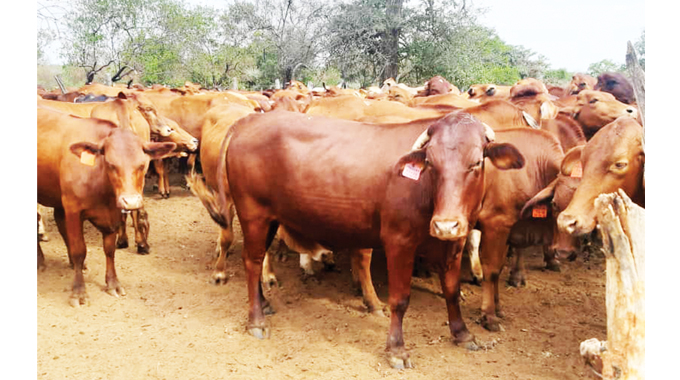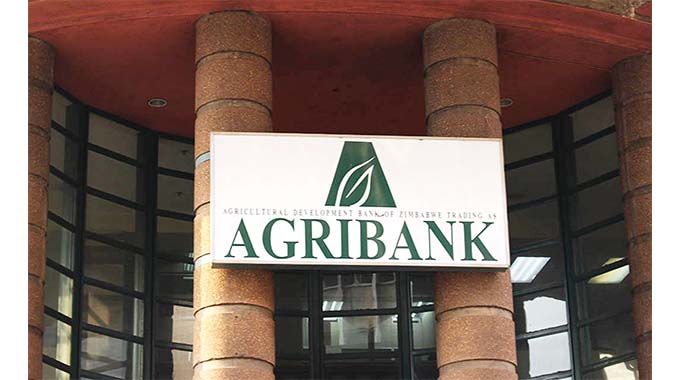The Chronicle

Sukulwenkosi Dube-Matutu, Chronicle Reporter
FOR Gwanda-based farmer Mr Thabani Sibanda being successful entails keeping a daily record of his 400 cattle that he says are valued at nearly US$300 000.
Starting with six cattle in 2010, his dream was always to become a renowned livestock farmer. To pursue his dream, he had to give up his job at one of the country’s leading banks to focus on his farming project.
 Money -Image taken from Shutterstock
Money -Image taken from ShutterstockHe retired in 2014 just after he had been promoted to a senior post. Today Mr Sibanda who is based at Mkashi Range in West Nicholson has a herd of 400 cattle. His herd comprises of Brahmans, beef masters and cross breeds. His target is to convert his entire herd to beef masters for commercial purposes.
He is also into stud breeding. Mr Sibanda benefited from the Government’s land reform programme and he was allocated an 800- hectare farm in 2014.
Mr Sibanda developed a passion for livestock farming through interacting with clients.
 Mr Thabani Sibanda’s cattle
Mr Thabani Sibanda’s cattleHe has held several managerial positions at different banks which include being a branch manager at Standard Chartered, ZABG bank supreme manager, Agribank provincial manager for Matabeleland South, Agribank regional manager for corporate banking for Southern Region and Agribank head of strategy and advising at the Head Office in Harare.
A month after being promoted to head of strategy and advising by Agribank, Mr Sibanda left to join IDBZ as regional manager for Southern Region as he wanted to be closer to his cattle project.
Even though he was good at his job, he decided to retire in 2014 at the age of 41, to focus on his livestock farming project.
While he was employed he used his salary to buy cattle to grow his herd. Each month he made it a point that he bought one beast.
 Agribank
Agribank“I started building up my herd in 2010 and I first bought six beasts. At that time I was working in the banking sector.
“Part of my job description involved recommending loan applications for farmers. I was also involved in business development and client management.
“I was interacting with farmers a lot and I even visited their areas to see the assets they owned as part of pre- assessment. I was mainly handling well established farmers and seeing their cattle inspired me,” he said.
“I moved from Harare to Gwanda in Matabeleland South as I wanted to start my project. At first I was running my livestock farming project while I was at work.
“My job was however, demanding and at one time was promoted to a senior post and I moved to Harare. I held the post for one month and left because it had become difficult for me to manage my livestock project while in Harare.”

He said leaving his formal job to concentrate on his livestock project is one of the best decisions that he has ever made and now the cattle are valued at a combined US$300 000.
Mr Sibanda who operates under the trade name Inkonyane Cattle Company, said he gained knowledge about livestock farming through researching and interacting with other farmers.
When he started his livestock project, Mr Sibanda only had traditional breeds. He later realised the importance of quality breeds and then introduced Brahman bulls to cross breed.
“At first I used to buy any beast that I could afford and I later realised that quality is important in livestock breeding. I bought Brahman bulls and started converting my herd. I then later decided to move into beef masters as I realised that they are best suited for our environment. I then sold my Brahmans and introduced beef masters. My herd is now mostly composed of beef masters while the rest are cross breeds. Eventually I want to remain with beef masters,” Mr Sibanda said.
He said to be a successful livestock farmer, one had to be hands-on. It was also important, Mr Sibanda said, to keep records of all animals. He said it was also important for a farmer to only keep cattle that are productive.

Mr Sibanda said the drought which hit the country during the 2019/2020 farming season adversely affected his project. He said he was, however, proactive and came up with strategies to save his animals.
“At that time I had a herd of 570 cattle. I moved 200 of my animals to Nyamandlovu forestry lands where there was good grazing. I sold some of the cattle that remained at my farm to buy stockfeed. I recorded a few cattle deaths despite the fact that the drought was very serious. While my herd dropped, the production capacity wasn’t affected a lot because I remained with about 170 steers. I kept the heifers and cows to maintain production,” he said.
Mr Sibanda who was allocated his 800 hectare farm in 2014, says the farm is now small for his herd. He said as a result he is renting space from nearby farms to keep part of his herd.
“A beast which is about 450kg has to graze on 10 hectares of land in a year. This means that my 800 hectares farm can safely carry 80 beasts. As livestock farmers we need big farms that can accommodate large herds.
“Matabeleland is a cattle region and should lead in growing the national herd hence the need for Government to avail big farms to livestock farmers,” he said. — @DubeMatutu
Article Source: The Chronicle
